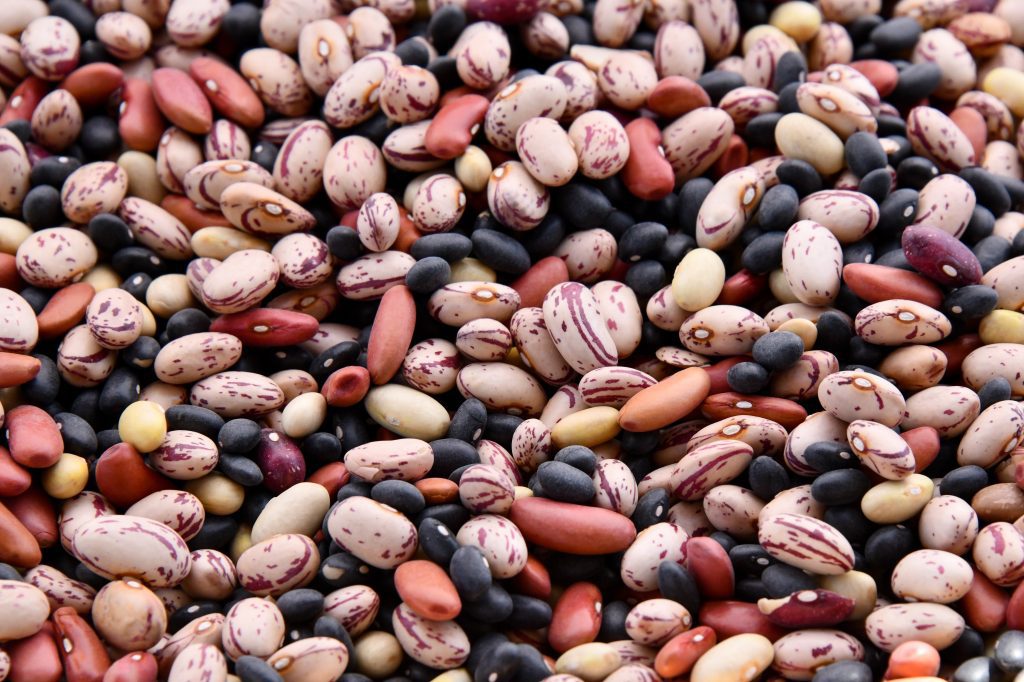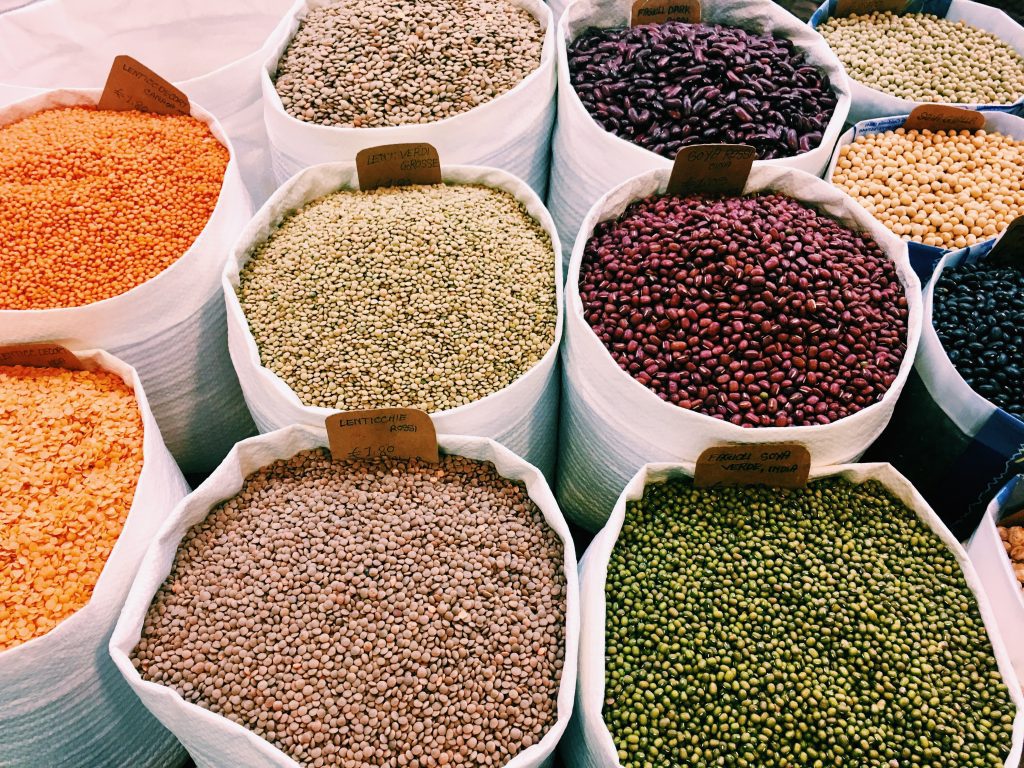Edible seeds from the legume family include lentils. A legume is a seed that develops inside a pod. Since their inception in the Middle East around 8,000 B.C., the cultivation of these beans has gradually spread. Lentils are a staple food in many countries because their earthy, mild, nutty flavor complements a wide variety of dishes. But why you should eat lentils? Yes, and we’ll give you 10 reasons why lentils are good for you.
Vitamins, minerals, and fiber are all abundant in lentils. These health benefits have sparked interest in how they might mitigate chronic disease. Prebiotics found in lentils provides food for the microorganisms that live in the digestive tract (the gut microbiome or gut flora) and aid in the prevention of digestive diseases. Is lentil soup healthy? This is a good question to ask if you need a quick and healthy meal idea.
Varieties of Lentils
Lentils come in a wide variety of forms. Common color distinctions include black, brown, yellow, red, and green. Most frequently encountered examples include :
- Brown Lentils

These are the most common types consumed worldwide. They retain their shape and earthy flavor even after being cooked. This makes them a great addition to hearty dishes like soups and stews.
- Red Lentils
When compared to its brown counterpart, the flavor of red lentils is more subtle, earthy, and slightly sweet. Cooking speeds up the breakdown of red lentils, making them a faster option than other types of lentils. For purees and Indian dals, their quick softening makes them a great choice.
- Yellow Lentils
Yellow lentils, as opposed to other types of lentils, are the most flavorless. As a result, they become more palatable to those who aren’t fans of the peppery vegetable flavor. Dal, made from yellow lentils, is a staple food in India.
- Green Lentils
You won’t have to worry about them falling apart when you cook them because of their firm texture and nutty flavor. They come in a wide range of sizes and work wonderfully in salads.
- Black Lentils
This is the tiniest variety of lentils imaginable; it almost has the appearance of caviar. It’s true that you can substitute either one for the other in most lentil dishes. Black lentils are sometimes known as “beluga lentils.”
Why lentils are good for you?

1. Promote a healthy heart
There is a lot of fiber, folic acid, and potassium in lentils. Heart health is promoted by all of these nutrients. Eating foods high in fiber has been linked to a reduced risk of cardiovascular disease in several studies.
2. Control your cholesterol level
Lentils contain soluble fiber, which can aid in reducing cholesterol. Soluble fiber exits the body with the bile salts produced during digestion. Cholesterol is essential in the production of new bile salts to replenish those that are used up. As bile salts are made from cholesterol, the amount of cholesterol in the bloodstream is reduced.
3. Stabilize blood sugar
Lentils are an excellent food choice because they contain “good” complex carbohydrates. Consuming lentils, which are renowned for their ability to maintain stable blood sugar levels and satiety-inducing properties, may assist you in reducing the amount of food you take in on a daily basis. Lentils may help prevent or control diabetes in the body as a whole.
4. Improve blood pressure control
Potassium is an essential nutrient that can be found in lentils. Potassium helps protect against the adverse effects of salt, which can contribute to high blood pressure (hypertension). Lentils were found to have a greater effect on lowering blood pressure than peas, chickpeas, or beans in a study involving mice.
5. Support your digestive system
The high fiber content of lentils promotes healthy digestion and feeds beneficial bacteria in the gut. The fibers are useful in a number of other ways as well, including the reduction of constipation and the encouragement of frequent bowel movements.
6. Energy booster
In terms of iron, lentils provide about a third of what is needed in a day. Hemoglobin, a protein found in red blood cells, is responsible for transporting oxygen around the body. And as well as, your body needs oxygen to convert food into usable fuel.

7. A key to a healthy pregnancy
Folate, a B vitamin, or supplemental folic acid, is also abundant in lentils. If you’re expecting a child, they’ll be crucial to your child’s growth and development. Folic acid is essential for preventing neural tube defects and other major birth defects if consumed adequately before and during pregnancy.
8. Enhance metabolism
Lentils boost metabolism and assist the body in bettering its ability to maintain a healthy weight because of their high fiber content. As an added benefit, it reduces the need for excessive snacking in between meals because it makes you feel fuller for longer.
9. Offers Anticancer Properties
Polyphenols are beneficial to one’s health and are known for their powerful antioxidant and anti-inflammatory effects. Lentils are an excellent source of these beneficial polyphenols. Polyphenols shield the body from cancer, heart disease, and osteoporosis in addition to UV rays and radiation.
10. Strengthens the Nervous System
Lentils are an excellent source of a variety of vitamins and minerals that are necessary for the normal functioning of the brain. In addition to this, they supply a constant amount of glucose to your brain, which acts as fuel and is an essential source of energy for cells throughout the body. The high fiber content also helps maintain healthy brain function.
The Bottom Line

Even lentils have some undesirable characteristics. The body’s response to all that fiber can be unpleasant. Excessive consumption may result in cramping and flatulence. If you’re not used to eating a lot of fiber, like most people aren’t, slowly increasing your lentil consumption can help you avoid these symptoms. Anti-nutrients are naturally occurring compounds found in lentils. When these compounds come into contact with minerals like iron and zinc, they bind to them and make them less bioavailable to our bodies. Lentils can have this effect mitigated by proper preparation and cooking.
Did you find this helpful? Let us know in the comments section.
To learn more about plants with their health benefits, you can check out our Facebook and YouTube Pages.
You might also like:









3 thoughts on “10 Reasons Why Lentils Are Good for You”